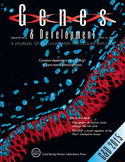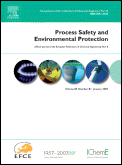 A Michigan judge has ruled against a motion by PubPeer to protect the identity of an anonymous commenter, and asked the post-publication peer review site to give her any information they have about the commenter.
A Michigan judge has ruled against a motion by PubPeer to protect the identity of an anonymous commenter, and asked the post-publication peer review site to give her any information they have about the commenter.
According to one of the lawyers present, the site said in court the only identifying information it has is an I.P. address. The judge will decide March 24 (Tuesday) whether or not to share the I.P. address with the lawyer representing a cancer researcher who has demanded PubPeer release information about those who have written anonymously about his work.
On March 5, PubPeer had a better day in court, when the judge agreed to allow the site to protect the identities of its other anonymous commenters. For the remaining commenter, the judge asked to hold another hearing yesterday.
During that meeting, the judge ordered PubPeer to produce “identifying information for that commenter,” said Alexander Abdo of the American Civil Liberties Union, who helped represent PubPeer in this case: Continue reading Judge tells PubPeer to hand over information about anonymous commenter; site weighing “options”








